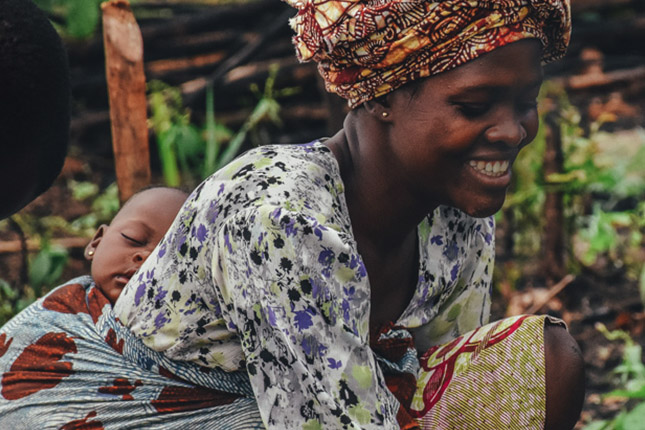Women’s scholarship program revitalizes horticulture and transforms lives in Africa
If you ask the Senegalese women who seized an unusual training opportunity to become professional agriculture extension advisors why they sought to participate, their answers include striking similarities. Translated from French, their responses are salted with words like “resources,” “market,” “income,” “earning.” And one particular reason appears repeatedly: “To help.”
“This training will allow me to better supervise the farmers in my village and help them benefit from their vegetable and field crop production. And they will be able to carry out income-generating activities,” says Soidou Thiam.
“The training in agroecology will be very useful to me. As a young girl who has practiced agriculture through rice cultivation, I see myself in this training. I would be better able to contribute to the management of the environment. I will be able to introduce the women of my village to market gardening. I don’t want to stay at home all the time to take care of household chores. So this training would give me the opportunity to find an occupation while earning a living and helping other women do the same,” answers Teneng Ndiaye.
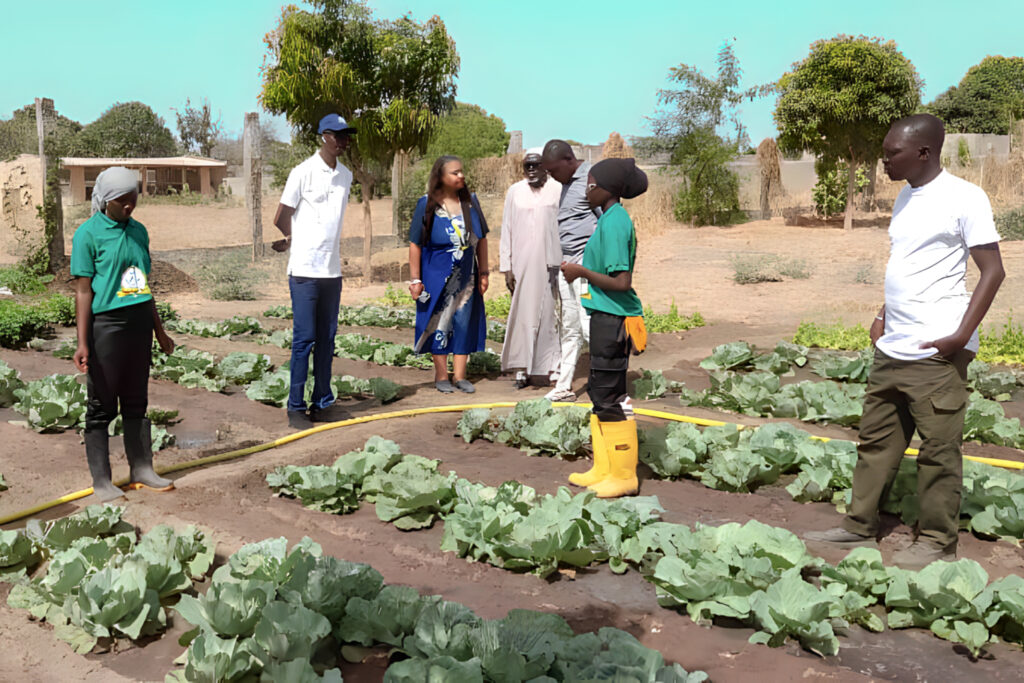
“It is important for women to be active in agriculture for the development of their families and to find additional resources. This three-year training will give me the necessary elements to better practice this agriculture,” says Adama Ndiaye.
All three women are among the latest cohort in a unique scholarship program aimed at supporting African women farmers to become experts in the field of agriculture extension and give back to their communities. The goal: expanding upon local expertise and knowledge by offering free training on sustainable food production practices and new technology to improve livelihoods, especially for women growers, who typically have less access to training opportunities than men.
Administered by Winrock across eight different African countries beginning in the early 1990s, a pair of separate, privately-funded scholarship programs that merged in 2021 has so far supported 115 women with training to become professional agriculture extensionists.
The older of the two training programs, the Robert D. and Elizabeth Havener Fellowship, started nearly three decades ago. Havener and his wife, Elizabeth, both felt that in order to improve socio-economic development and boost food security in Africa, more African women needed access to education including specialized agriculture extension training.
A subsequent program, the Christopher Dowswell Scholarship, was created by the Dowswell family after his death in 2011 to provide financial support to African women pursuing agricultural extension degrees. Christopher Dowswell had served as the chief assistant to Dr. Norman E. Borlaug ─ a Nobel laureate and founding Winrock board member ─ for more than 30 years. Like Havener, Dowswell was firmly committed to the idea that agriculture should play a significant role in improving people’s lives, especially in the world’s most food insecure regions.
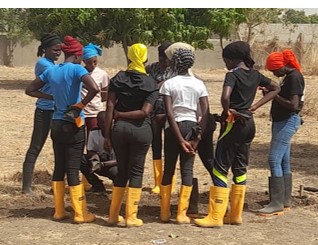
The two programs combined in 2021, with the first awards after the merger distributed to women recipients in 2022. The support can be used for any study-related expenses including tuition, examination fees, research expenses, and/or laptops.
Today, the latest class of 15 highly motivated Senegalese women extension trainees is working through a three-year program at the Djilor Saloum Vocational Training Center, in southeastern Senegal.
The center itself has faced challenges staying open in recent years, in part because of its remote location, which made it difficult to attract students. Combined with lack of financial resources and inadequate information sharing about the benefits of vocational training, the center has struggled to meet its enrollment and education goals.
Winrock’s scholarship program has created renewed demand for the center’s services, breathing new life into an important training institution in rural Senegal. The women scholarship recipients there say that without full funding from the Havener-Dowswell program, they would have been unable attend or to pursue further education after obtaining their baccalaureate degrees.
The students are currently cultivating a 1,500-square-meter farm, practicing hands-on training in horticulture that is helping them develop new skills. They are growing cabbage, okra, lettuce, peppers, and hibiscus leaves, along with lettuces, eggplants and radishes, contributing to the center’s food supply while generating income.
Since 2016, Djilor Saloum has engaged with Winrock through its Farmer to Farmer program, which has brought a series of expert, U.S.-based farming and agribusiness volunteers to the center, helping to influence and enrich training curriculum and methodologies used there. This collaboration has enabled the facility to model and amplify effective agricultural practices introduced by volunteers.
Amy Sene, the VTC’s director, said the scholarship program is helping women trainees to earn their Certificat De Specialties and Certificat D’aptitude Professionnel in horticulture. The certification will enable the women to competitively seek agriculture-focused jobs and apprenticeships. It’s also helping to promote and demonstrate the tangible benefits of vocational training in enhancing community development.
“To make the training sustainable, the VTC [vocational training center] will involve local and regional actors to facilitate the work and at the same time reach the maximum target,” Sene adds. “This scholarship for CS and CAP horticulture training will enable the establishment to immediately place [recipients] trained and competent in horticultural production on the job market. It will have a considerable impact in boosting production at the VTC level, raising the level of apprenticeships and opening up to fruitful and sustainable partnerships.”
The program’s success has increased attention and helped the center gain support from local and regional authorities, which is crucial to expanding the reach of agriculture training programs and promoting sustainability.
Scholarship recipient Aby Ndour says the scholarship program, training, and experience have been transformational.
“I found the horticultural training really enriching,” says Ndour, who holds a bachelor’s degree in farm advisory services.
“It is exciting to be able to put into practice what I have learned and to see the concrete results. The training has had a huge impact on my life today. It has given me the confidence to undertake, to acquire knowledge and skills in the field, and opened up many professional opportunities ahead of me. After graduation, I plan to enhance the horticultural profession by setting up a large agricultural farm for the production and processing of market gardening products to enable other young people, especially women, to become active in the field to provide for their needs, reduce unemployment through value addition, participate in food security and preserve green spaces,” she adds.
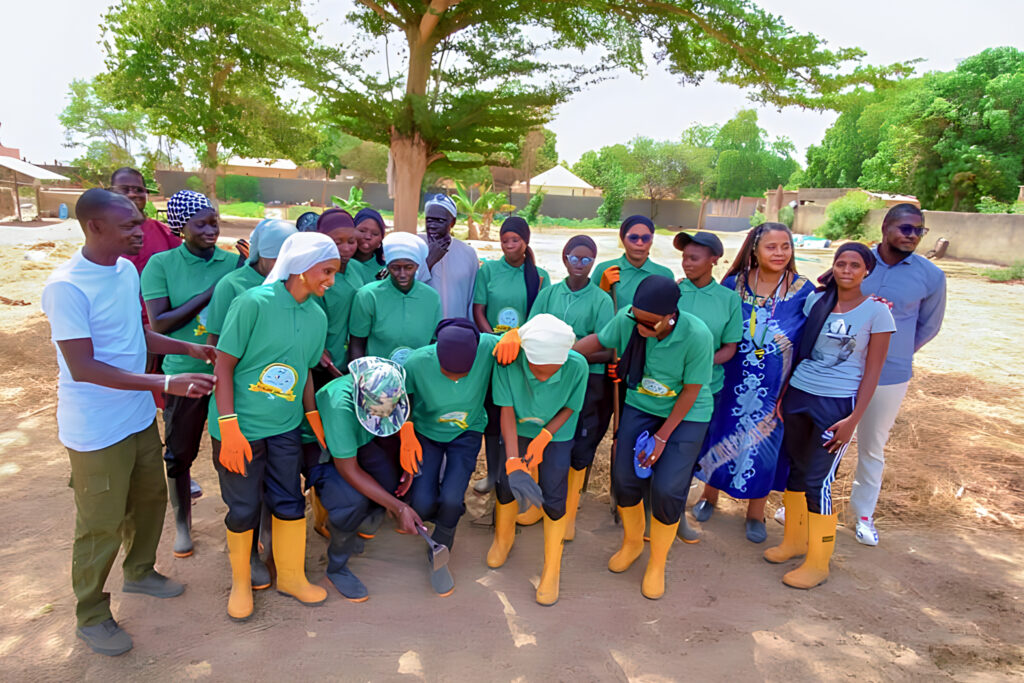
Winrock has partnered with communities and government in Senegal since the 1980s on projects that have supported smallholder farmers to improve nutrition and incomes, increased the skills and numbers of women farmers, and prevented child labor. Winrock currently implements the USAID Entrepreneurship & Investment Activity, which aims to increase access to key services for enterprises and entrepreneurs, boost investment and create new employment opportunities that drive positive social impacts, especially for Senegalese women. And from 2019 until early 2024 Winrock implemented USAID’s Senegal Dekkal Geej (Restore the Sea) project, which worked with local fishers, Senegal’s government and the private sector to improve food security, increase incomes and strengthen resilience.
Related Projects
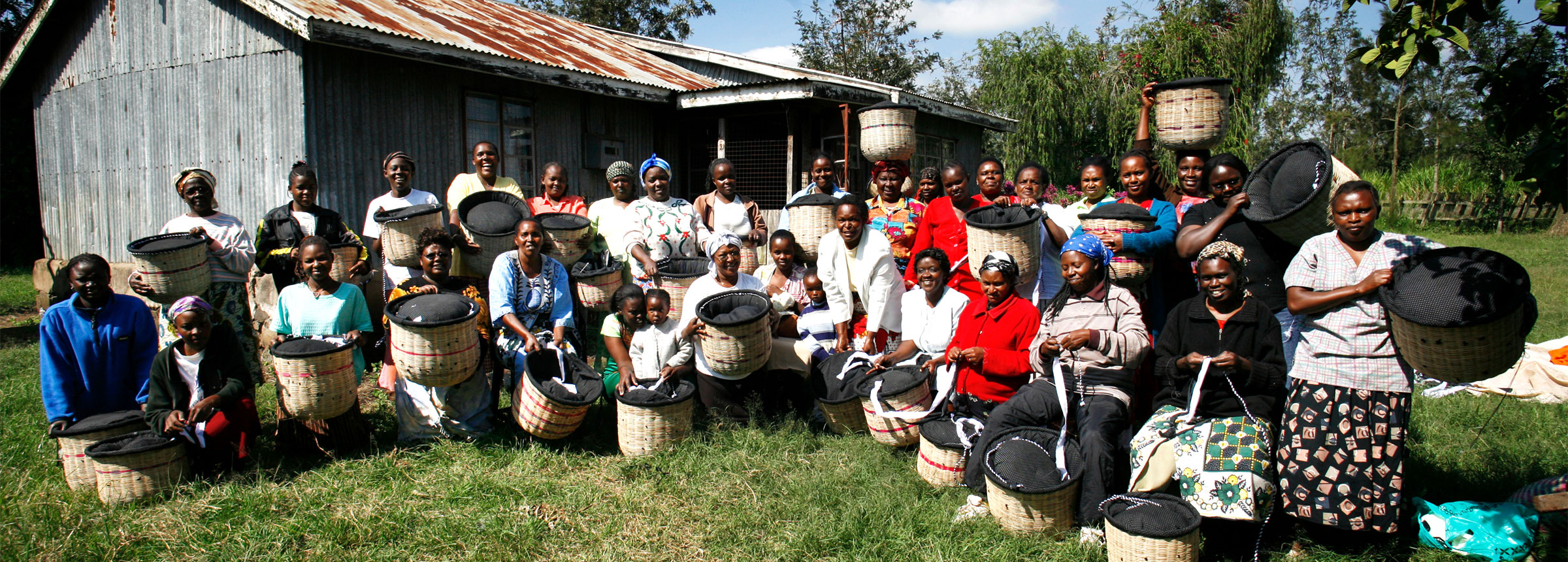
Robert D. & Elizabeth Havener Scholarships for African Women
While great strides have been made to expand opportunities for African women, social and economic factors still leave many disadvantaged. This exclusion of women from leadership positions and participation in the economy prevents the continent from reaching its potential. By providing scholarships, this program advances the high-level involvement of women in agricultural and environmental fields […]